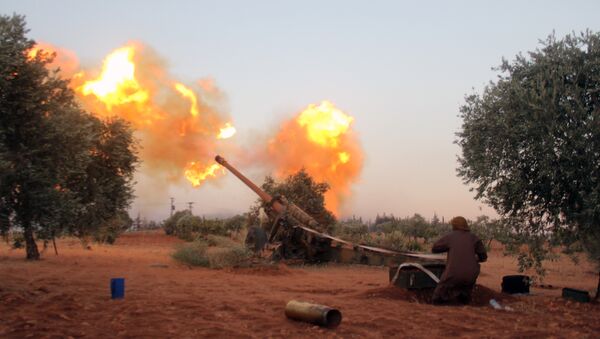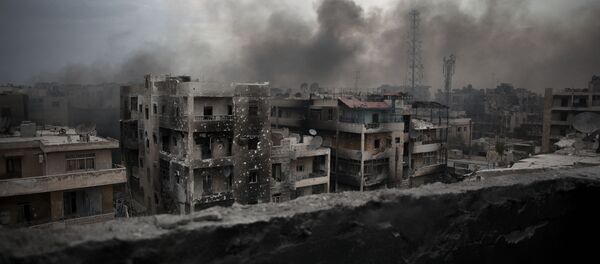Media outlets in Western Europe largely refrained from covering the research conducted by the Balkan Investigative Reporting Network (BIRN) and the Organized Crime and Corruption Reporting Project (OCCRP), German political expert Alexander Rahr told Vzglyad.
"One could assume that there will be no scandal," he said. "It will not enter the public domain in the West. This is what is usually done when unflattering facts surface that cast a shadow on NATO or the EU's new members, who sometimes, I think, are allowed to do anything they want."
Eastern and Central European nations, according to researchers, approved arms export licenses "despite ample evidence that weapons are being diverted to Syrian and other armed groups accused of widespread human rights abuses and atrocities."
Yet media in some nations that have been singled out in the report have not paid meticulous attention to the findings that cover shipments made since 2012.
Czech media "briefly" covered the report, Jiří Just from the Aktualne newspaper said. "There were photos and videos, but in general no one in the Czech Republic knows about it; no one is talking about it."
People could become more interested in this issue when "more reliable and specific information appears," he added. "In general, the [Czech] society ignores this issue."
The Czech journalist hopes that the European Union will launch an investigation into the issue and that European authorities will take it seriously. "I personally think that it was wrong and ugly," he said.
A source in the European Union told RIA Novosti on Tuesday, that Brussels is "aware of the investigation's data" and is "studying it."
"No one can say who is moderate and who is not in Syria," Fyodor Lukyanov, editor-in-chief of Russia in Global Affairs and research director at the Valdai International Discussion Club, told Vzglyad. "Everything is so complicated, incomprehensible, vague."
Such findings could prompt some people "to make some noise," he added. They could result in formal and informal investigations, but Lukyanov was convinced that there will still be no repercussions.



